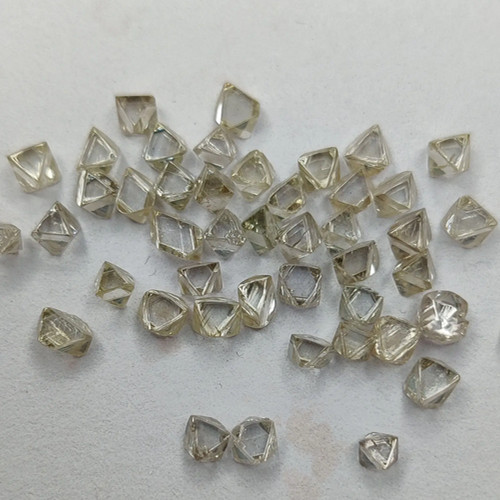
Thanks to artificial intelligence, natural diamonds may receive consistent grading.
New York-based Rare and Forever first began training artificial intelligence to grade diamonds in 2018 to make the grading of its diamonds more uniform and accurate. The company now offers this service to natural diamond retailers as competition with online and cultivated diamond retailers becomes more intense.
Throughout the diamond industry, grading is done primarily by hand, with graders grading diamonds by examining them through a microscope for factors such as color, clarity, cut, and carat weight. Retailers typically use the Gemological Institute of America (GIA) to assess and certify the quality of diamonds.
Since the advent of lab grown diamond in the 1980s, natural diamond brands have struggled to differentiate their products. According to diamond retailer Queensmith, natural diamonds typically sell for 60-80% more than lab grown diamond; their quality and provenance determine their value.
But the lack of accurate and consistent diamond grading has hurt the industry. According to a report by research firm Research and Market, the global cultivated diamond market is worth US$22.45 billion in 2022. By 2028, the market is expected to grow to a value of US$37.32 billion. Research firm market.us reports that the global diamond market will be worth around $140.1 billion by 2032, up from $98.3 billion in 2023.
"There are errors in manual grading," says Sam Indelicato, director of jewelry at Rare & Forever, a 2-year-old diamond brand. "It's not always consistent; there are opinions and biases."
Indelicato, a former diamond wholesaler, said that graders are known to upgrade diamonds in order to sell them at a higher price. During the grading process, lab grown diamond are still being misclassified as natural diamonds until 2021. The Gemological Institute of America (GIA) has also been accused of accepting bribes to improve diamond grading. The US Federal Trade Commission has established several diamond grading regulations that focus on providing accurate information so as not to mislead customers.
The classification of natural diamonds can be vague and complex for customers, and although the grading system remains the same, the same diamond can be given different grades in different assessments.
With the help of artificial intelligence, Rare and Forever promises to provide a solution to the grading process. To train the AI, it uses a large linguistic model to compare thousands of diamonds and classify them according to the four Cs as well as other categories, including milky white. Indelicato says that because the AI relies on the dataset it is trained on, it is less likely to produce biased scores than manual analysis.
"The AI doesn't have bad days, it doesn't eat and it doesn't need to drink coffee. It doesn't suffer from vision, and it doesn't have biases. At the end of the day, it creates accuracy and consistency." Indelicato declined to disclose information about Rare and Forever's investment in training AI scoring.
Rare and Forever is working with brick-and-mortar jewelry retailers such as Biondi Jewelers in Colorado to grade their diamonds with artificial intelligence. As diamonds are graded more accurately, they will also be priced more accurately, Indelicato added: "Our retailers now have something different compared to online diamond sellers."
Consumer demand for such information is currently low, given its unreliability, and Davis Biondi, co-owner of Biondi Jewelers, says customers usually come with a list of what they are looking for when buying a diamond, but they are usually not interested in data about the diamond itself. "Usually the customers are engineers or very mathematically minded people who care about the grading aspect,"
Olivia Landau, founder, and CEO of the diamond brand The Clear Cut, says the human element of diamond grading is still important.
"Integrating artificial intelligence into natural diamond grading has the potential to improve accuracy and consistency, plus an AI-enhanced grading system can grade large numbers of diamonds quickly and efficiently. Sometimes waiting times in large labs can be long, so it is particularly useful for those who need to handle large volumes of diamonds on a regular basis."
She adds, however, that "it is important to consider the potential impact on the livelihood of human diamond graders. Diamonds are very complex and AI-assisted grading can be very inaccurate without the help of someone with extensive diamond knowledge and experience who has drafted these data sets."
Similarly, AI verification is currently being trialed in luxury categories such as handbags, but its accuracy is still open to question.
Technology has become an integral part of the high-end jewelry industry. de Beers successfully used blockchain to track 100 of its diamonds in 2020 and plans to integrate the technology into its entire assortment. rare and Forever also uses blockchain to track its diamonds.
Diamond Artificial Intelligence can also be used to work on the traceability of brands. Currently, it is possible to trace the origin of a diamond by analyzing its molecular structure, but this process is very time-consuming. Artificial intelligence would speed up the comparison of similar molecular structures. This information is becoming increasingly important for sellers of natural diamonds, as customers are increasingly concerned about social and environmental sustainability and where the products they buy come from.
 English
English 简体中文
简体中文









